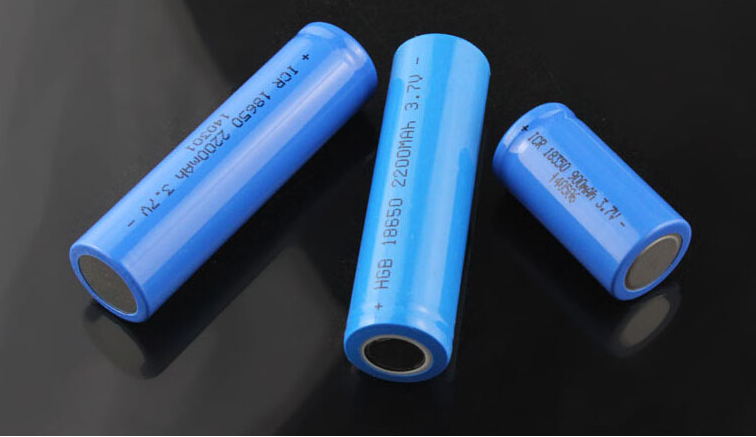Lithium Ion Battery Disposal Environmental Impact
Nov 29, 2019 Pageview:944
The lithium-ion battery industry is booming right now. Every gadget these days is powered by lithium-ion batteries, whether it is smartphones or laptops. There is no denying that these batteries are quite effective and powerful. However, the question which warrants attention is whether these batteries are good for the environment.
You get to hear a lot about how the environment is being adversely affected due to our actions. Therefore, it is crucial that one endeavor to find more about the environmental impact of things that we use in our daily life and the lithium-ion battery is one such item.
Are lithium-ion batteries environmentally friendly?
Lithium-ion batteries cannot be called perfect green technology. There is a lot that still needs to be done in their mining and recycling processes before they can get that stature. However, it is noteworthy that these batteries have more environmental benefits to offer when you compare them to their alternatives, which is fossil fuels.
Carbon emissions can significantly be reduced with battery technology since more people would turn to electric vehicles. Our dependence on coal plants, which are a significant source of pollution, will also be reduced owing to these batteries. Lithium-ion batteries ensure that we have a compelling alternative to fossil fuel energy, which poses less risk to the environment.
To summarize, lithium-ion batteries can indeed be considered environment-friendly to a large extent. However, for them to become perfect as far as the environment is concerned, it is necessary that changes are brought about in their mining and recycling processes.
How does lithium-ion battery affect the environment?
For one thing, it can exhaust our natural resources. It is believed that one of the largest deposits of Lithium is stored under the Salar de Uyuni in northern Chile and southern Bolivia. It is estimated that the Bolivian Andes mountain range house nearly two-thirds of the total supplies of lithium of the world. Thus, as expected, the area has had some intense drilling operations in recent years.
The drilling operations have witnessed an increase due to the announcement that the Chinese government made in 2015, wherein they pledged to give more importance to electric vehicles. As a result, the price of lithium has increased as well. And this is likely to witness an even further upward trend owing to the increased demand for lithium-ion batteries.
This drilling and mining can have a significant impact on the environment. For starters, abundant water is required for the process. Thus, the farmers in nearby areas end up losing on this precious resource for cultivation. Furthermore, the equipment used for the mining process is also a cause of pollution.
Another important thing that has to be given attention is that the toxic chemicals which are used for the extraction of lithium from the ground can also infiltrate the nearby rivers and water supplies. Indeed, this catastrophe had already occurred in 2016, wherein mining operations contaminated the water supply in the Liqi River in Tibet, causing the death of numerous fish and poisoning cattle and yak.
Powerful river monitoring solutions can minimize the risk of such incidents but cannot eliminate them completely. Chemicals are an integral part of the mining process, whether lithium is mined from rock or from under the ground. It is the aquatic life that has to bear the brunt of these mining operations.
Thus, it is hardly surprising that environmentalists have called for researchers to look for new and less invasive ways to power the batteries. However, this is easier said than done. For one thing, we cannot be sure of how a substitute source would fare. There is quite a possibility that while on the surface, it appears that the new source produces fewer emissions and is environment-friendly; it actually affects the atmosphere adversely in the long term.
More attention needs to be given to the mining and drilling operations to make sure that their adverse effects on the environment can be minimized. It is vital that we make the best use of the available resources while ensuring that the environment is protected as much as possible.
Lithium-ion batteries comprise toxic chemicals that can harm the environment if not disposed of properly. It is essential that proper measures are taken to dispose of these batteries so that the environment is not affected in any way.
How much does lithium-ion battery disposal cost?
Disposing of lithium-ion batteries is something that needs to be given attention if we want to protect the environment from potential harm. It is advised that al the lithium-ion batteries are disposed of in a recycling center so that the environment is not affected owing to them. However, less than 5% of lithium-ion batteries are currently recycled. Thus, it is apparent that recycling programs need to be given more attention.
A lot of companies are looking to make full use of the opportunity that has arisen due to the increased demand for lithium-ion batteries as they are offering recycling programs and are looking to expand the business. However, substantial investment would be required to recycle all the batteries that are likely to be discarded in the coming years.
The recycling process was initially more expensive and time-consuming compared to mining new lithium batteries. Perhaps this is why most companies found it more economical to mine new lithium instead of investing in recycling the batteries. However, things have now changed. There could be a simpler way to dispose of and recycle lithium batteries by preserving their valuable component that is their microstructure. Direct recycling technology for these batteries might make it profitable if further enhanced into large-scale processing.
The lithium extracted from recycled batteries is usually used for non-battery applications. An example of this is using lithium for lubricating greases. The estimated cost of disposal of lithium-ion batteries is somewhere between $4,000 and 5,000 per ton.
It is apparent that more thought needs to be put into how lithium-ion batteries can be recycled so that the process becomes more economical, and the chances of the battery being a hazard for the environment are minimized.
Leave Message
Hottest Categories
-
Hottest Industry News
-
Latest Industry News











